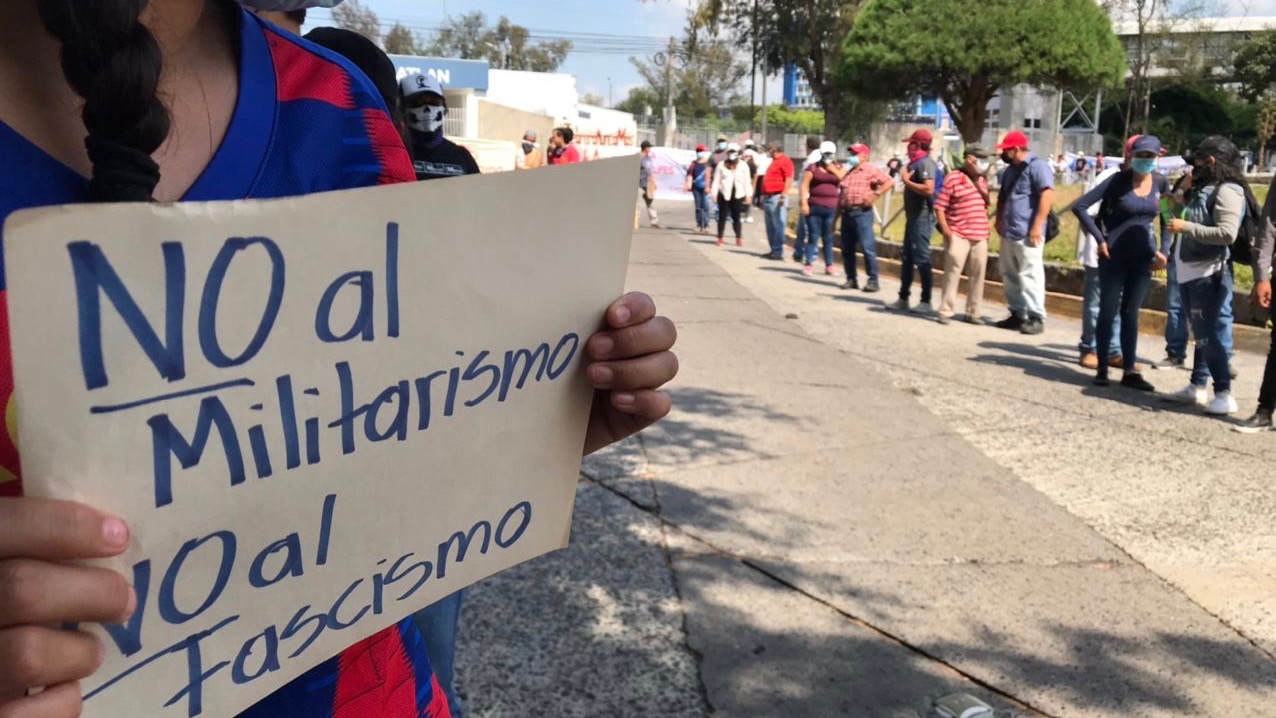This Sunday, on February 28, over 5.4 million Salvadorans will go to the polls to elect 84 legislators of the National Assembly, 262 mayors as well as 20 members of the Central American Parliament for the period 2021-2024.
These upcoming elections are crucial for the strengthening of institutional democracy, which has suffered various setbacks under the rule of the increasingly authoritarian government of far-right President Nayib Bukele. During Bukele’s nearly 2 years in office, the economic, political and social crises have also deepened in the Central American country.
On February 9, 2020, Bukele occupied the country’s parliament alongside armed police and military to pressurize the opposition legislators to approve his request for a 109 million USD loan from the Central American Bank for Economic Integration to further arm the security forces. He alleged that the amount was necessary to deal with the rampant gang violence and the deterioration of law and order situation in the country.
Progressive activists allege that over the last year, Bukele took advantage of the COVID-19 pandemic to intensify his authoritarian policies, which led to an increase in human rights violations and the breakdown of the rule of law in the country. In April 2020, he faced harsh criticism from national and international human rights organizations for using lethal force against imprisoned gang members and violating their rights amid the health emergency.
In May 2020, thousands of people protested Bukele’s mishandling of the COVID-19 pandemic. In a series of protests, citizens denounced the lack of food and economic aid to poor and unemployed informal workers as well as the use of the army to enforce quarantine, the precarious condition of the quarantine centers, the arrests of people who allegedly broke lockdown, the shortage of personal protection equipment for doctors and other healthcare workers, the delay in the return of thousands of Salvadorans stranded abroad, among other issues.
Recently, he was condemned for fostering a climate of hatred against opposition political parties. On January 31, two members of the opposition left-wing Farabundo Martí National Liberation Front (FMLN) party killed and five others were injured in an armed attack against the FMLN election caravan in the capital San Salvador. The FMLN and several of its members rejected the attack and condemned Bukele for promoting hatred and violence against their party through his hate speeches. The leaders of almost all the parties contesting in the elections, except the ones related to the president, also condemned the climate of tension and division in which the electoral contest is taking place.
In a recent interview with Peoples Dispatch, Víctor Suazo, candidate of the FMLN for the Legislative Assembly for San Salvador, told us about the FMLN’s program to promote new legislations to protect democracy, fight authoritarianism, defend public institutions and promote social changes.
Suazo stressed that “El Salvador has a grave crisis with public finances, since the government has been violating a law of fiscal responsibility and we have had a high level of public debt, zero transparency and this has meant that institutions like the International Monetary Fund are talking and there are some agreements, that the government will seek to implement, after the elections on February 28, agreements that implicate a fiscal adjustment of 3 percentage points of the GDP and it is expected that there will be mass layoffs, cuts to social spending and an increase in indirect taxes such as the value-added tax that affects the poorest in the population. So we have to be very alert to this in the new legislature of this situation.”
The forthcoming electoral process is also significant from the judicial point of view as later this year, the newly elected members of the legislative assembly will appoint five new Supreme Court justices and an attorney general.
To know more about Nayib Bukele’s authoritarian measures, the threats they pose to democracy in El Salvador and the proposal from the left-wing Farabundo Martí National Liberation Front (FMLN) party, watch our interview with Víctor Suazo, candidate of the FMLN for the Legislative Assembly for San Salvador here.





